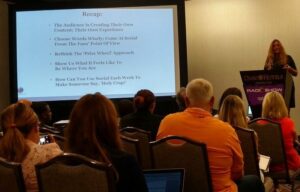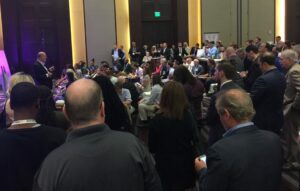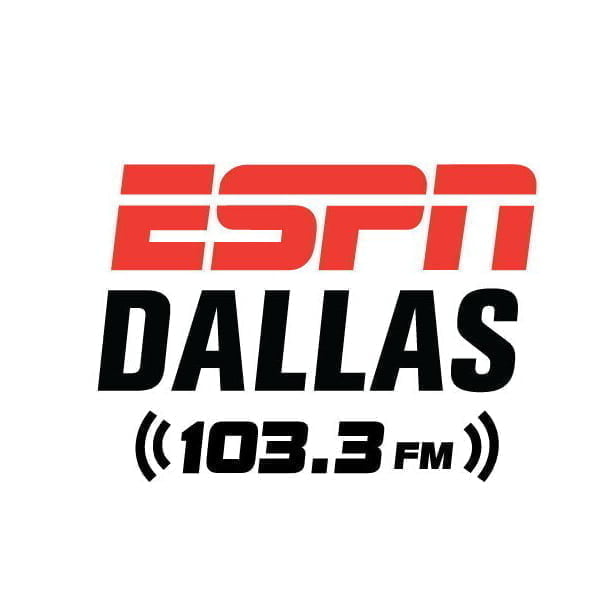The 2016 NAB Radio Show is in the books and as usual, I’m feeling energized after a few days of learning. This year’s event took place in Nashville, Tennessee, a city with rich history, and a strong commitment to country music, which made it feel like the right place to spend a few days analyzing the state of the radio industry.
The music scene on Broadway was vibrant. You couldn’t walk thirty feet without reaching another bar or restaurant and hearing a local artist perform. The County Music Hall of Fame and Johnny Cash Museum were both within walking distance of the conference, as was the Bridgestone Arena, which featured concerts by Carrie Underwood, and Avenged Sevenfold, and left passionate music fans enjoying the Nashville nightlife all throughout the week.
As I’ve learned over the past few years, these conferences provide many positives, but there are always one or two areas where things can be better. It takes the effort of many to organize, speak, perform, and attend, and the reason people travel for this event is to get a deeper education on where our business is, and where it needs to go. That is very important and wouldn’t be made possible without the contributions of the NAB, our broadcasting industry, and the thousands of people who work in it.
This year more than 2,200 showed up, and there was a little bit of something for everyone to enjoy. The Marconi and Radio Wayne Awards were especially top notch, and included a classic line from New York radio icon Scott Shannon who said “I’m happier than a Kardashian walking into an NBA locker room”. It was a great few days of celebrating our industry and educating ourselves and for those who couldn’t make it, I’ve highlighted some of the positives I gained from this year’s event, along with a few areas where improvements can still be made. I enjoyed attending and speaking on a panel, and am looking forward to next year’s show in Austin, Texas.
What Was Good
Performers: The NAB did an excellent job of including some great musical acts into this year’s show. Whether they were performing live and talking about the way radio factored into the success of their songs, or just sitting on a panel and talking about the business of music and the challenge of growing a brand, there were a bunch of artists providing insight into their careers and how important radio has been to what they do.
In the span of three or four days, Big & Rich, Kellie Pickler, Danielle Bradberry, Jennifer Nettles, Kevin Griffin of Better Than Ezra, and Jesse James Dupree of Jackyl were all involved either speaking or performing, adding a nice energy to the event. In the case of Dupree, his candid opinions and insights on brand building during a conversation with Mike McVay and Michael Brandvold were especially interesting and helpful.
Social Media: Few would disagree that social media plays a large role in our daily lives, and when Lori Lewis is involved in a session talking about the do’s and dont’s in the social space, few are more informative or enjoyable. Lori’s line “the essence of social media is reminding people that they matter” was perfectly stated, and a good reminder to brands to further engage with their audience on social media platforms.
She shared a few examples of why radio needs to abandon its ‘prize wheel’ approach and look at social from a fan’s point of view. Gaining a deeper understanding of the business we’re in and how it appears to be glamorous to the audience was another part of her focus. During the discussion she urged the room to let the listener capture their experience when they stop by a radio station event or studio because “it’ll be on Facebook before they leave the parking lot”. She was right on target.
Networking: As great as the NAB is for learning new information about the radio business, many in executive positions attend to further their relationships, speak on panels and keep the profiles of their companies strong. That helps open the doors to new business opportunities. The turnout this year from the majority of broadcasters was strong, and that’s important because for radio conferences to work it requires support and involvement from our industry’s leaders.
I saw high ranking members of CBS, iHeart, Entercom, Cumulus, Alpha, Emmis, Beasley, Townsquare, Hubbard and Cox in attendance, plus a few smaller groups had a presence too. While many of these broadcasters concentrated on business inside of each conference room, they allowed themselves to unwind and enjoy time together outside of them. We may compete against one another on a daily basis, but we all face the same challenges. Besides, competition is more fun when you’re battling people you like, respect, and enjoy spending time with.
If you’re in the radio business and trying to take larger steps in your career, or if you’re trying to break into the industry for the first time and this event is happening in your town, I recommend being present. Not only will you get a chance to learn from these folks, but you can get valuable face time with them in the lobby too. With radio being a business built on relationships, it never hurts to expand your friends list.
Programming Panel: I had the pleasure of being included in a panel discussing what makes sports radio powerful. The session included perspectives on what makes other passion formats such as Religious, Spanish, and Urban successful, and what stood out was how invested each person was in their respective format. It reminded me that regardless of the format we work in, everything about radio starts with love, passion and creativity.
I tried to educate the room on what lends itself to success from the on-air person’s position, and from the programmer’s office. It was great seeing a few familiar faces in the crowd, including my new cameraman Dennis Glasgow, PD of 99.9 The Fan. Thanks buddy! I utilized one audio clip during the session, a powerful two minutes from Mike Valenti of 97.1 The Ticket talking about the loss of the Detroit Lions play by play rights last November. To see the presentation and hear the clip click here.
Podcasting: The smaller panels that I noticed drew the largest crowds were ones which focused on podcasting. This is a space that continues to surge and the NAB did a nice job of utilizing a variety of people with strong experience in the field including Seth Resler, Traug Keller, and Steve Goldstein. Goldstein’s session in particular was very insightful and focused on the growing audience in podcasting and how it’s a different experience compared to radio. I was surprised to learn that only 1% of podcasting comes from commercial radio. That speaks to a huge opportunity for the radio industry to increase its productivity. It also has the radio airwaves to promote it further. If done right, it could produce significant audience, revenue and loyalty.
One part that continues to baffle me is how many radio people continue looking at podcasting as a fad or niche business. They also fail to see that original programming is what’s become popular, not repeated 3-4 hour shows that were broadcast over the radio station’s airwaves earlier in the day. Offering the over the air content may be one part of your online strategy but it shouldn’t be the only representation of your brand’s podcasts. If it is you’ll be disappointed by the results.
It’s scary because one of radio’s biggest past problems has been waiting too long to react. This feels like another one of those times. During one session with FCC Commissioner Mignon Clyburn, a woman stood up and said supporting AM radio was important because it gives people a chance to be on the radio, and if it isn’t saved, children won’t be able to dream of being on the radio. The only problem with her logic is that kids don’t dream of being on the radio now like they did 20-30 years ago, and there’s this thing called podcasting which has taken off and given them the ability to broadcast. It’s also a lot easier to put together. It’s no different than previously dreaming of writing for a newspaper and now having the ability to create your own website and launch your own brand. Times change, interests change, and radio traditionalists need to follow suit or risk being left out in the cold.
What Was Missing
On-Air Talent: I’m often perplexed when I attend a conference and don’t see many on-air talents in attendance. Is it not helpful to learn? To network? To speak about your craft and educate others who work in the same business or hope to in the future? I recognize that companies don’t often pay for their on-air people to attend these functions and I’m not advocating that they should, but I wonder if some groups should be developing a system to make sure some of their key on-air people do get a chance to be involved. I noticed that Hubbard is doing this and I think that’s smart. If you’re an on-air talent and a future radio conference takes place in your city, spend a day before or after your show picking up some knowledge. You’ll take something away from it.
Programmers and corporate executives can discuss subjects at length at conferences and many are very informative. Some of these folks may one day be your future bosses. But if the information they share doesn’t travel to an on-air host’s ears, it’ll never get passed through the speakers. Therein lies the issue.
Is there a perfect solution? Probably not. I’m hopeful that others who perform on the air will want to invest in their career and continue learning. Unfortunately during the past five years I’ve seen little involvement from on-air talent (specifically sports talk talent) at these events and it’s something that I believe can be much better.
Programming Focus: Most conferences these days put an emphasis on digital growth, revenue generation, statistical analysis, and other parts of the business which matter to executives. I am fascinated by those topics myself. But you know what gets the least amount of attention? The on-air programming.
I’m a firm believer that you need both programming and sales hitting their marks to create a dominant business. The reason though that an audience tunes into a radio station or podcast is for the content experience. We need to be aware of trends and recognize that there’s more to a brand’s success story than what gets broadcast over the airwaves, but the reason we have fans and loyal supporters is because of our on-air product. When it gets less attention at conferences when the entire industry is present, I wonder if that’s a missed opportunity.
Closing
These conferences are valuable. Not every session will satisfy your desires but overall they’re worth your time. That said, we need to remind ourselves of what it was that drew us to the industry in the first place. It wasn’t a spreadsheet, sales training course, or radio commercial. When people hear others in this industry talk about their passion and creativity to make great radio and deliver success, it inspires them. It makes others want to do it, and it shows our business to be a fun and cool place to make a living in. We need more of that.
Or I guess we can choose the other path. We can just stand in a room, complain to the FCC, hope to be bailed out, and trust that our future will be in good hands because of it. You decide which path makes more sense.

Jason Barrett is the President and Founder of Barrett Media since the company was created in September 2015. Prior to its arrival, JB served as a sports radio programmer, launching brands such as 95.7 The Game in San Francisco, and 101 ESPN in St. Louis. He also spent time programming SportsTalk 950 in Philadelphia, 590 The Fan KFNS in St. Louis, and ESPN 1340/1390 in Poughkeepsie, NY. Jason also worked on-air and behind the scenes in local radio at 101.5 WPDH, WTBQ 1110AM, and WPYX 106.5. He also spent two years on the national stage, producing radio shows for ESPN Radio in Bristol, CT. Among them included the Dan Patrick Show, and GameNight.
You can find JB on Twitter @SportsRadioPD. He’s also reachable by email at Jason@BarrettMedia.com.










